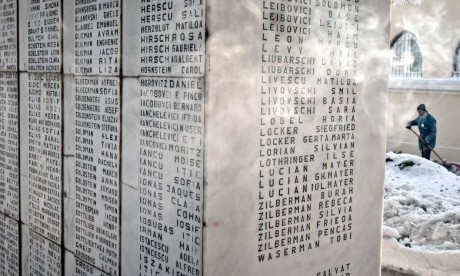David Stoliar’s neat house sits atop a hill on the edge of Bend, a small city in central Oregon. A few steps lead up to the front door. Stoliar’s wife, Marda, opens, followed by a happy beagle. “Come in,” she says cheerfully. “Come in.”
Her husband is waiting in the living room, surrounded by souvenirs and family photos. Stoliar, his light-blue eyes twinkling, appears much younger than 90. He laughs, chats about the weather, mentions the road conditions up on nearby Mount Hood. He’s making small talk, obviously, to avoid the actual topic of this visit.
David Stoliar needs time to bring his thoughts — and himself — all the way back to that night. He’s actually never discussed it before with a German reporter. “Nobody has asked me,” he says with a shrug, adding emphatically that, after this meeting, he won’t ever speak of it again — with no one, no matter what or where they’re from.
“Not a good memory,” Stoliar states matter-of-factly. “I just want to finish my life in peace.”
But memories, of course, can’t be dismissed so easily. Especially these memories. The explosion, catapulting him into the water. The screams of the others, fading slowly. The wait for his own certain death on that icy night at sea.
Stoliar’s story has always been a taboo of sorts. His ordeal illuminates a forgotten, inconvenient chapter of the Holocaust, which the then-Allies would rather not be reminded of. For, if anything, they chose to look the other way — before, during and after.
“Everybody had an excuse,” Marda says.
That chapter found its horrifying conclusion in the Black Sea, near Istanbul, in the wee hours of February 24, 1942. That’s when a Soviet submarine sank a Jewish refugee ship en route to what was then the British Mandate of Palestine. All told, 786 people, among them 101 children, either died instantly or slowly froze and drowned in the wintry water.
Only one of them made it. Continue reading
Source
